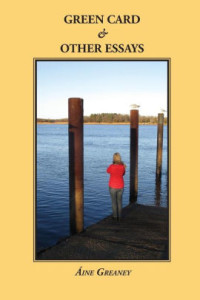I’ve been thinking a lot lately about what it means to be home. Many people are working from home these days. All the years I worked in offices I desperately wanted to work from home. Even now I remember each and every snow day when I was allowed to work remotely as a sacred and blessed time.
I know there are many who struggle with this new reality, extraverts who miss the interaction with others. And it’s true that I valued being able to step down the hall and get Laura or Jonathan’s input on some task. Still, this being at home to me is nirvana, to be able every day to be in this space that I designed for myself.
But home is more than this house, this place we’ve carefully adapted to our needs. It is also the places where we suddenly and unexpectedly know we are where we belong. For me, that was the first time I crossed the Tappen Zee bridge into New England. And again that early morning landing in England, a March morning, frosty and cold. Faced with a standard transmission car with the gear shift on the opposite side and traffic patterns that challenged my orientation, still, for all that, I knew suddenly that I had come home. I was in the right place. Many return visits over the years have only confirmed that initial sense of belonging.
For Greaney, that’s not the point. These brief essays fold us into the experience of leaving one not-unloved-home for another, of trying to find your way in an alien culture where you don’t recognise most of the references and your accent is legitimate fodder for jokes.
Immigration is much in the news these days, but it’s important to notice, as Greaney points out, that there are plenty of immigrants who are welcomed without question. When someone who has been complaining about immigrants says to her “Oh, not you . . . We weren’t talking about you,” Greaney appropriately responds, “’English speaking? White?’”
Interactions like this show up the racism inherent in today’s discussions about immigration. A white friend of mine who emigrated from South Africa, likes to challenge people by saying, accurately enough, “I’m African-American.”
Greaney explores the lingering strangeness. Not just the bizarre experience of St. Patrick’s Day celebrations in the U.S., but also seeing what U.S. prom night is like versus a quiet 1970s mass after Leaving Cert exams, commuting among pumpkin and alfalfa fields, wondering if the New England Methodist church down the road might hold a way forward for a Catholic girl.
One of the most affecting essays in this collection calls on Colm Tóibín’s Brooklyn where
. . . once Elilís Lacey (the daughter) steps aboard that ship, there are two separate and mutually invisible narratives—the tale of Eilís in Brooklyn and that of her widowed mother and stay-at-home sister back in Enniscorthy. Between those stories is an emotional firewall that blocks all knowledge of the other’s experience and, by extension each other’s respective wounds and losses.
Any of us who have left our first home for a new and different world can identify with this dual storyline, this firewall: a parent who cannot or will not imagine our new lives. Excitement and terror and sadness swirled together to forge determination.
These are beautiful essays: short, intense, emotionally precise, moving. I loved the essay about the gifts her father slips to her as she is leaving to return to the U.S. “’You’ll need this over yonder,’” her says, and Greaney pulls us around to see, yes, oh yes, they are needed.
What does the idea of “home” mean to you?

Dear Barbara,
Thank you for this very heart-warming review of “Green Card & Other Essays.” As you point out, the switch to full-time work from home is challenging for many of us, and I told myself that I’d write … oh, maybe three, maybe four book (cringe). But it hasn’t worked that way, and this has given me a needed boost. I especially appreciate your words and identification with the piece from “Brooklyn.” It’s a strange experienced how separate our real-life stories are and it’s funny that you experienced the same. I hope our writer paths cross in person some day.
Yes, I hope so too, once we’re back to in-person author events.